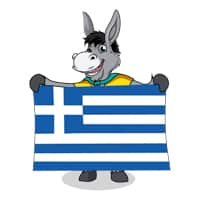Here are more than 80 interesting facts about Greece. Get to know things about Greece that you never knew about right now.
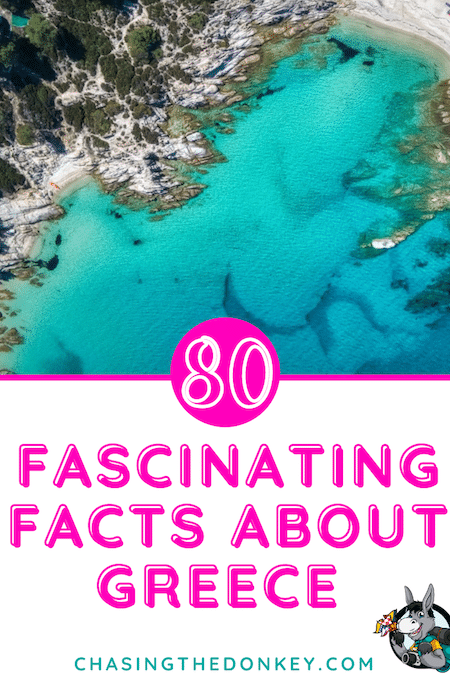
Getting ready for an epic trip to Greece and curious to learn interesting, fun, and fascinating facts about the country? Or do you want to surprise your friends after a holiday on the islands?
No matter what your case is, in this article, we will entertain you with some of the most fascinating facts about Greece…. Some of them are even unknown to the locals!
So, let’s start with the basic facts about Greece…
1. Greece’s official name is not Greece, but The Hellenic Republic, also often called Hellas.
2. Greece boasts one of the oldest and longest histories in the Western world.
3. Although many believe that ancient times were the most prolific times in Greece regarding art, architecture, philosophy, and politics, most of such achievements date to the Classical Age (from 480 to 323 BC).

4. Athens is 3400 years old, making it the oldest capital in Europe and one of the oldest in the world.
5. Democracy started in Greece, one of the many ways in which the Greek civilization has impacted and shaped western civilization until our present days.
6. During a particular time, Ancient Greece had more than a thousand polis (city-states), including Athens, Sparta, Corinth, Siracusa, Rhodes, and Thebes.
7. Over 2600 years ago (in 776 BC), the first Olympic Games took place in Olympia, a tradition that repeated over the years until 393 AD.
8. The modern Olympic Games only made their way back to Athens in 1896.
9. Women were not allowed to participate in the Olympic Games. Watching the games was also forbidden for women.
10. The country’s motto is “Eleftheria i Thanatos,” which means Liberty or Death.
11. Greece has more archaeological museums than any other nation worldwide (about 150).
12. The country has 18 different UNESCO World Heritage Sites, including the Acropolis, Mount Athos, the Medieval City of Rhodes, and the Old Town in Corfu. Fourteen more sites are still pending consideration for becoming a World Heritage site.
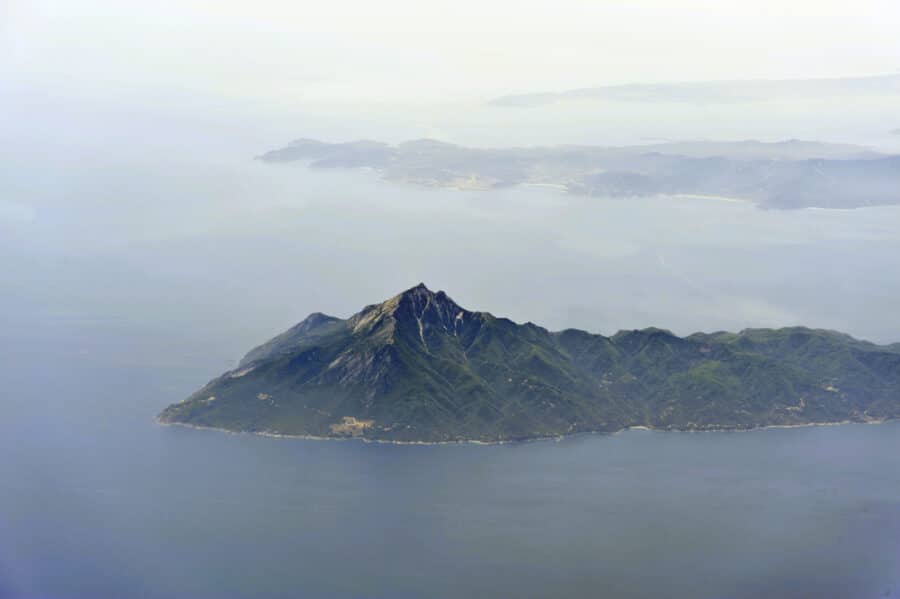
13. The Acropolis is the most visited archaeological site in the country, closely followed by the Archaeological Palace of Knossos in Crete.
14. Greece’s landscape is not just sea and beaches; the country features over 80% of mountainous terrain.
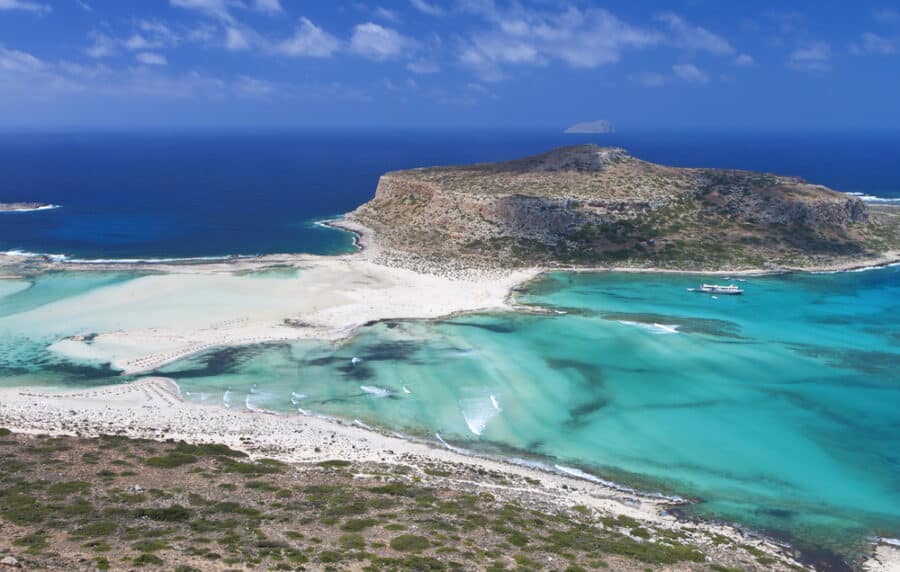
15. Mount Olympus is the country’s highest mountain, rising to 2,917 meters above sea level. Another well-known mountain peak is Mount Parnassus.
16. Greece is a popular ski destination, with dozen of exclusive ski resorts… In fact, Greece sees a lot of snow during the winter.
17. Greece has the longest coastline in southern Europe. In fact, the country’s coastline is the 10th longest on the planet, with almost 10,000 miles of amazing blue coastline; a bit less than half of it surrounds the several islands in the country.

18. Greece is among the sunniest countries on Earth, enjoying about 300 days of sunshine every year.
19. Athens holds the record for the highest temperature ever felt in Europe: 48° C, back in July 1977.
20. Greece has the largest sponge industry globally, especially thanks to the island of Kalymnos and the Greek sailors who moved to Tarpon Springs in Florida, USA. Today, Florida is a leader in the sponge industry in America.
21. The country is mostly surrounded by the sea; there is no area in Greece more than 137 kilometers away from the coastline.
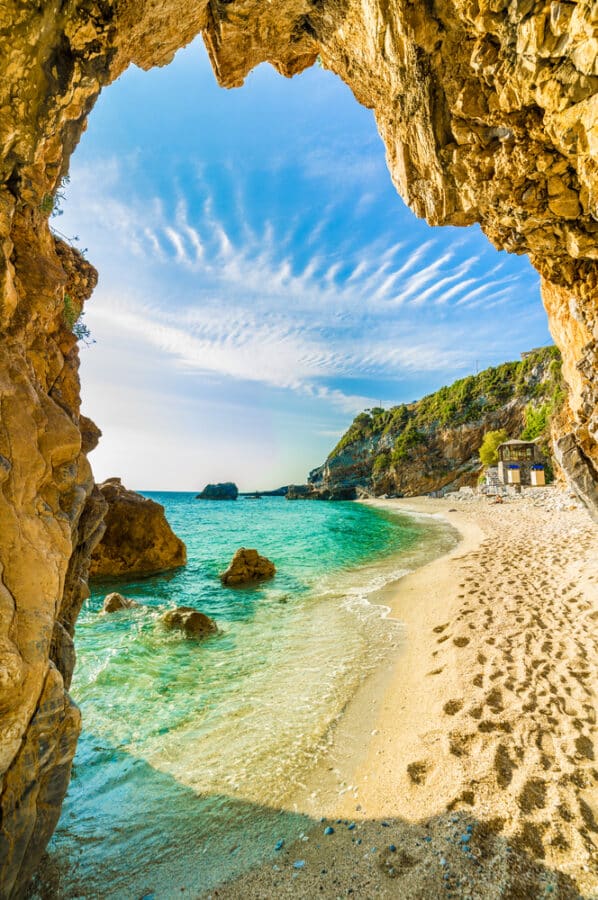
22. Greece has the largest merchant fleet in the world, and it controls more than 20% of the world’s total merchant fleet.
23. There are over 600 islands in Greece; only a few more than 200 hundred of them are inhabited.
24. The largest Greek island is Crete (8836 square km).
25. The smallest inhabited Greek island is Halki, only 28 square km.
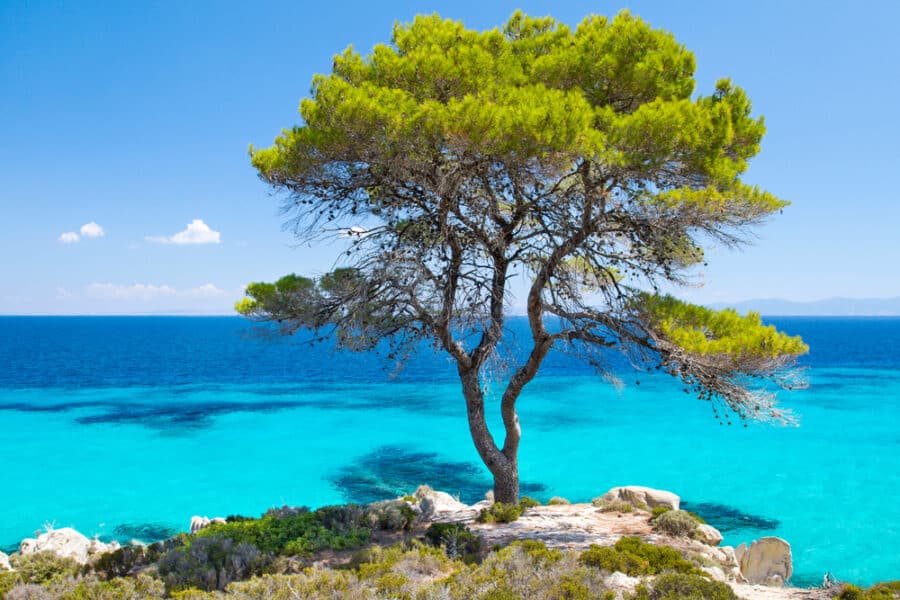
26. The island of Santorini is an active volcano. However, not many islands in the country have a volcanic origin.
27. Santorini is also the only inhabited caldera in the world, with small towns and villages perched on top of the world-famous volcano cauldron cliff.
28. The last volcanic eruption in Santorini took place during the 1950s.
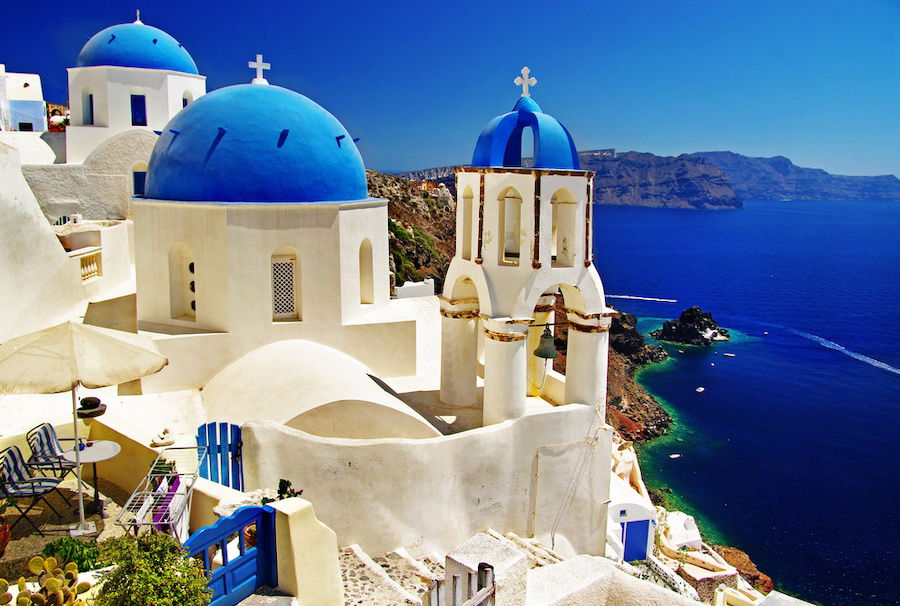
29. Santorini is the most popular Greek Island in the world and one of the ones that receives the highest quantity of tourists all year round.
30. Santorini has often been described as the most beautiful island in the world by Lonely Planet, CNN, the BBC, and countless other media.
31. Santorini features beaches with different colors, including several black (volcanic) beaches, a few white beaches, and a red beach. There is no pink sand beach in Santorini, but there is a pink sand beach in Crete, Elafonisi.
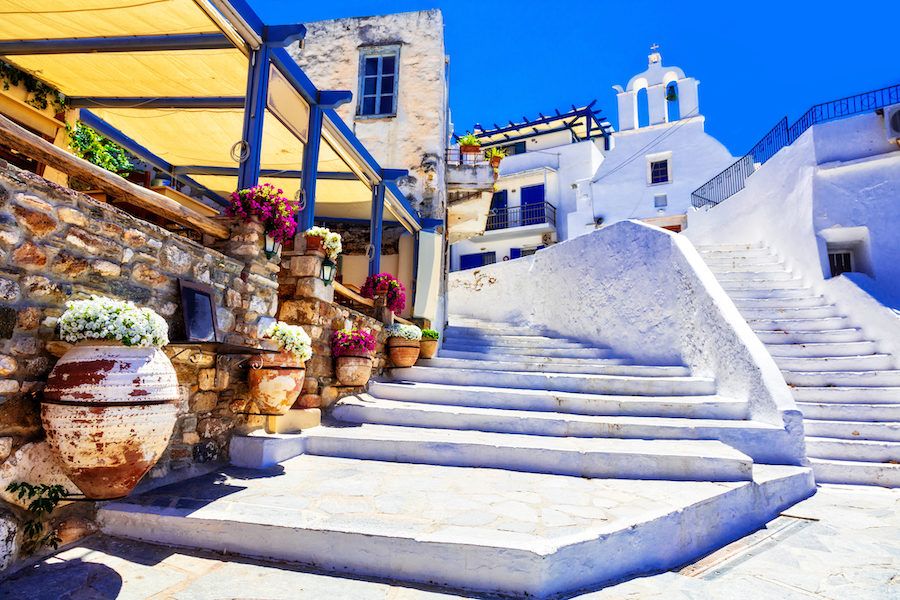
32. Cycladic architecture is made of whitewashed cubic houses with doors and shutters often painted in blue, a color that, according to popular belief, keeps evil spirits away from the home.
33. On the island of Mykonos, however, it is also common to find houses with doors and shutters painted in red, green, and blue. In fact, on the island, painters used to color them according to their trade or profession. It is said that houses with blue doors belonged to seamen, while dwellings with green doors belonged to people working in the fields, tradespeople painted them in red.
34. Despite being deeply religious, Mykonos is considered one of the top gay-friendly destinations in the world.

35. Since the 1960s, the official mascot of Mykonos has been a pelican named Petros. Of course, the original Petros has not lived this long, so a new official pelican takes this old one’s place whenever Petros dies.
36. Greece receives 50% more tourists every year than the country’s total population (more than 17 million tourists, especially in summer).
37. In Greece, tourism accounts for 20% of the country’s GDP; statistically speaking, this is the highest percentage for any industrialized nation in the world.
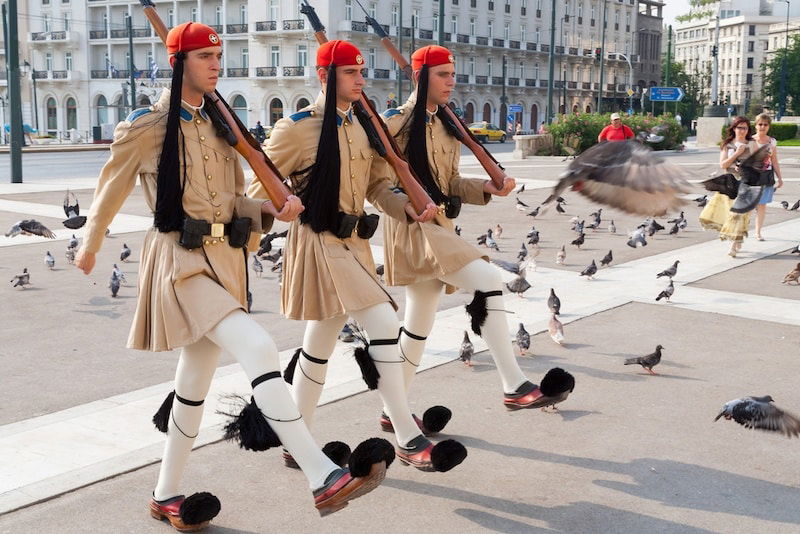
38. More than one-third of the population lives in Athens, the capital of Greece.
39. However, before becoming the capital of the country, in 1834, Athens was just a small town with 7,000 residents only, most of them living around the base of the Acropolis.
40. 98% of the population in the country are ethnic Greeks.
41. 90% of the Greek population is Christian Orthodox; the Orthodox Church is the third largest branch of Christianity.
42. There are also Muslims, Jewish, and Catholics in Greece.
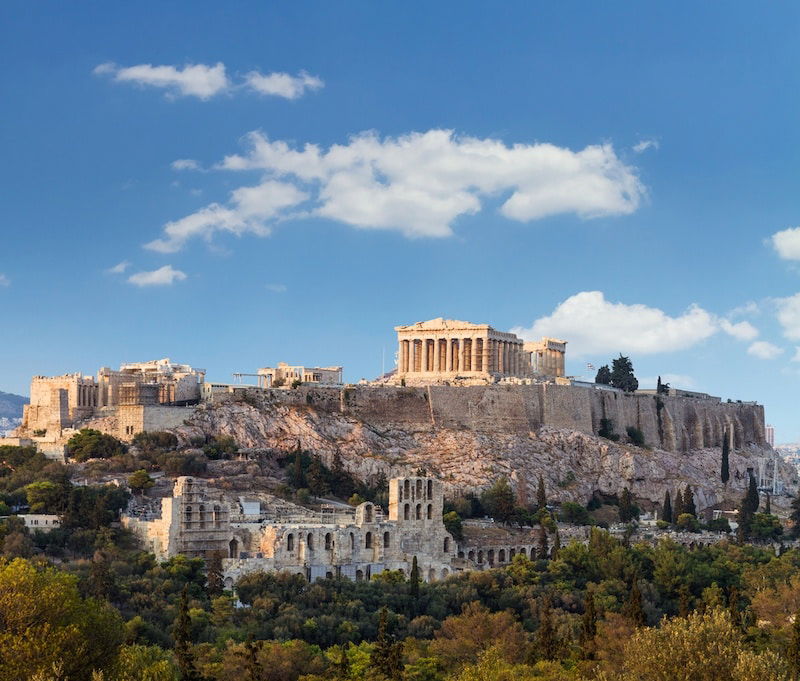
43. One of the oldest Jewish communities in the world lived in Greece and spoke their own language, Romaniote, which combined both words in Sephardim and Greek.
44. Greece ranks among the top 26 countries with the highest life expectancy in the world: 77 years for Greek men and 82 for Greek women.
45. However, life expectancy in ancient Greece was 36 years for women and 45 years for men. Only half of the kids born in ancient times managed to live.
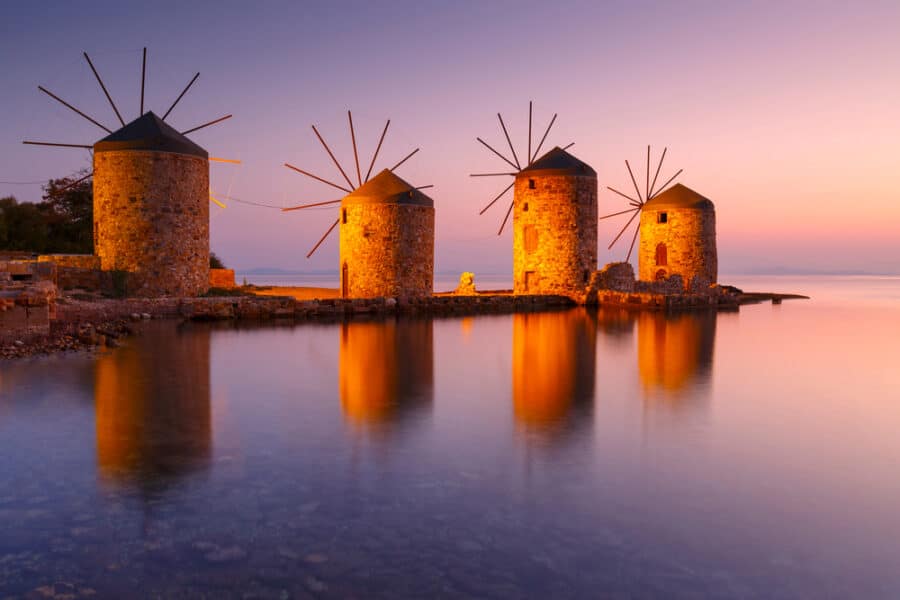
46. The population in Greece is mainly female; 55% women versus 45% men in the country.
47. Over 65% of the university population are women.
Greeks are famously known for being late to almost any occasion. This cultural fact is an unknown rule which states that showing even 30 minutes later than agreed is not simply common but the general rule for most social occasions.
48. It is more common to celebrate your Name Day than your birthday in Greece. Since the Orthodox religion features a holy name calendar, every day of the year is dedicated to one or more Christian saints or martyrs. Since Greeks are often named after these holy figures, then saint’s day becomes your name day, and it is celebrated with presents and family meetings.
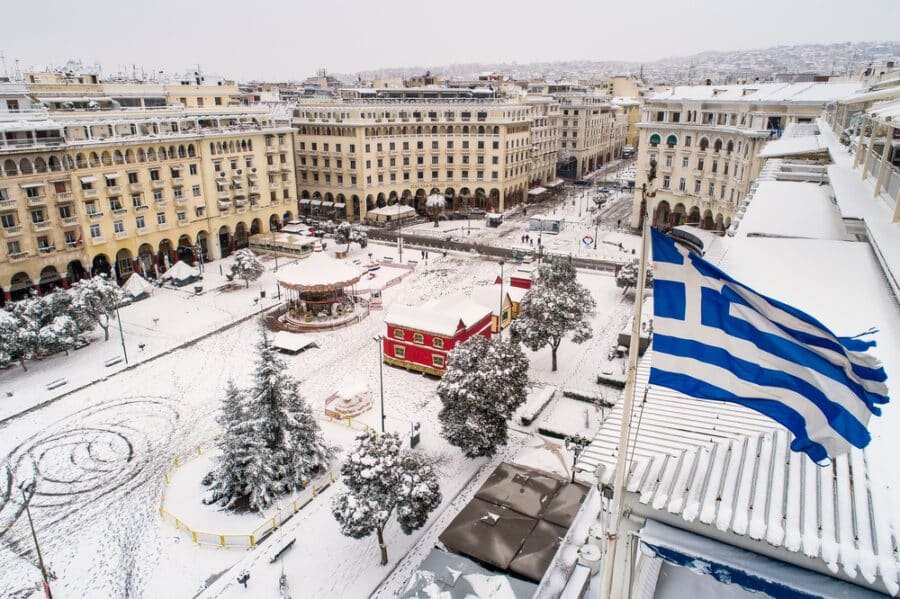
49. It is common for children to be named after their grandparents. Therefore, during a name day celebration, several cousins share the same name more often than not.
50. Families still have many children in Greece. Many Greek families have from 3 to 4 kids despite the economic crisis.
51. It is forbidden to wear high heels in ancient sites to avoid damaging old, precious monuments and findings.
52. The ancient Greek alphabet is the oldest written language still in use (with a few variations), although nobody knows how those same letters were pronounced in the past.
Karpathos Island, Greece
53. Greek is considered one of the richest languages worldwide, influencing even the languages deriving from Latin.
54. The word alphabet, which is used in many other languages other than English, comes from the Greek term αλφάβητο (alfávito), and it refers to the first two letters of the Greek alphabet, alpha (α) and beta (β).
55. The Greek language has influenced many different languages worldwide. Only in the English vocabulary, it is possible to find over 150,000 terms that directly come from Greek; some of them are common and are used every day, including school, decade, poem, cardiology, economy, psychology, paradise, cemetery, democracy, Europe, music, panic, narcissism, sarcasm, telephone… and many, really many more!
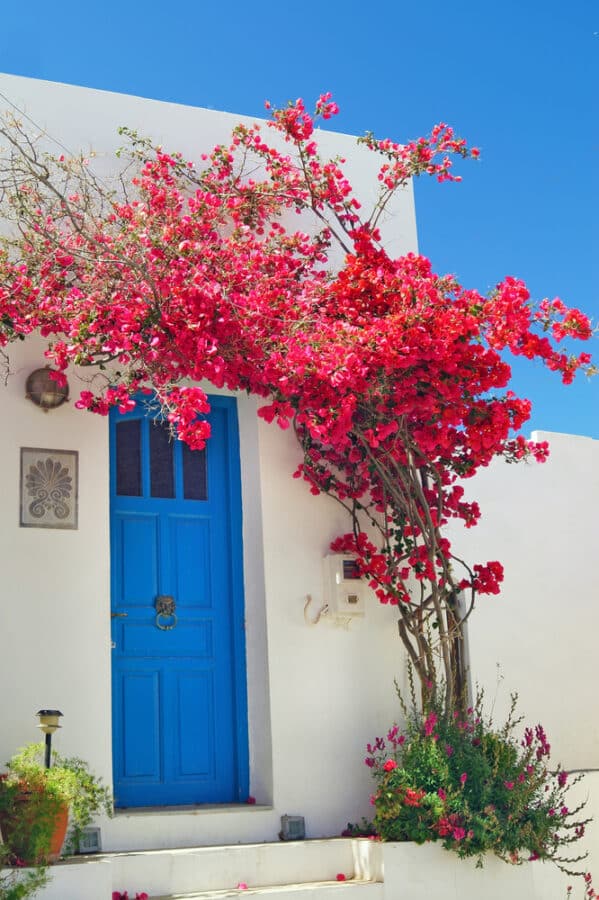
56. There are more theaters in Athens than in any other city in the world, including New York and London. In fact, the theater was born in the Classical times in Greece.
57. The island of Crete, home to the Cretan Diet, gave origin to the “Mediterranean Diet,” which features vegetables, plenty of extra virgin olive oil, nuts and grains, fish, and a very low intake of red meat.
58. Ancient Greeks loved wine; in fact, winemaking is a tradition that goes back for more than 4000 years. One of the oldest wine presses in the world was found in Heraklion, Crete.
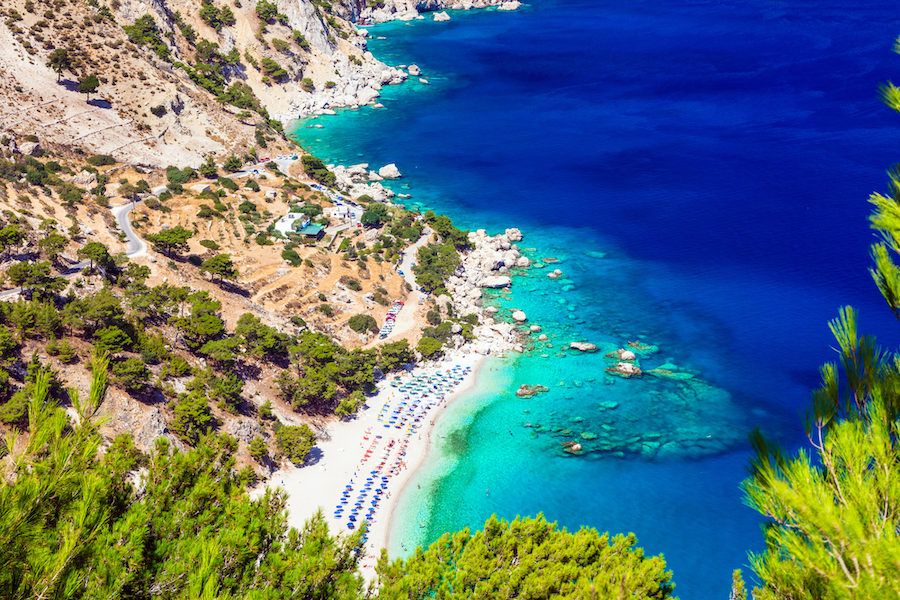
59. There are more than 600 wineries in Greece and dozens of native grape varieties.
60. In Ancient times, a typical Greek meal would include olives, bread, and wine. These three products still today remain three staple foods in the whole country.
61. The country is home to millions of olive trees, quite a few of them dating back from ancient times and still bearing fruit. In fact, Greece is the third-largest producer of olives in the world. Olive trees have since the beginning of times been considered to be the most sacred gift from the Olympian gods and is a symbol of abundance.
62. As a result, Greece produces more than 420,000 tons of olive oil each year, second only to Spain and Italy.
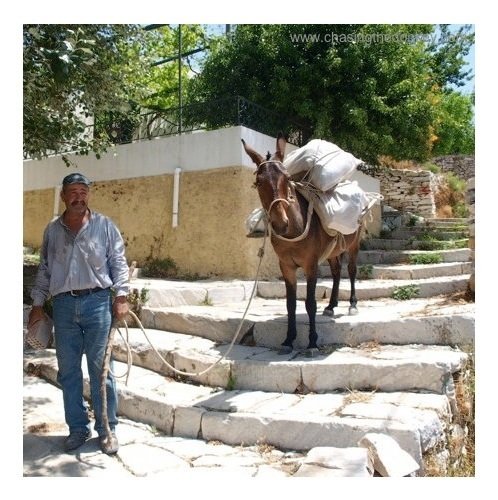
63. Greece is the European country with the highest consumption of extra virgin olive oil per capita, about 35 liters per person per year, compared to only 9 liters in Germany, or even 6 in Canada.
64. Olive oil is one of the most used products, not just for gastronomy. It is a common remedy in homemade cosmetics to contrast dry sky, dry hair, and many different skin conditions.
65. Greece produces more varieties of olives than any country in the world.
66. The Olympic gods of Ancient Greece were twelve, being Zeus the most important of them. Still today, the old ancient religion is practiced by a tiny group of people.

67. Zeus’ daughter, Athena, defeated Poseidon and became the guardian goddess of the city.
68. According to Greek mythology, Athena gave the first olive tree as a gift to the city of Athens; only after that did the sacred tree spread to the rest of Greece.
69. Greece is the biggest cheese consumer globally (the biggest cheese producer remains France). As a matter of fact, one of the most famous products from Greece is feta cheese, and it’s one of the country’s most important exports.
70. About 7% of the world’s marble comes from Greece, and it can still be seen in statues, columns, sculptures, and temples.
71. The Parthenon was mainly made from Pentelic marble, which was quarried from the flanks of Mt. Pentelikon; along with Italy, Greece is generally considered to have the most high-grade and luxurious marble quality in the world.

72. Approximately half of the marble of what the Parthenon was made of is known as the Elgin Marbles, a collection of stone sculptures and inscriptions known as the Parthenon Sculptures that Lord Elgin acquired in Athens between 1801 and 1805 and today lives in London’s British Museum.
73. Greeks are incredibly superstitious. One of the most common superstitions in Greece is the Evil Eye, locally known as mati (literally meaning “eye”). The Greek mati is considered to be believed to be negative energy coming from jealous, hostile, or envious people. According to popular belief, having the mati can provoke a myriad of negative effects, including headaches, weakness, end even continuous bad luck. To protect against these harmful vibes, many Geeks wear a mati pendant (or even hang it on the door of their homes and places of business). The charm consists of a blue and white eye that finds traces as far back as the sixth century BC.
74. The two major Greek poems by the famous poet Homer, the Odyssey, and the Iliad, are thought to have been written during the ancient Greece period.

75. Three architectonic styles Greek columns had; were Doric, Ionic, and Corinthian and adorn most temples and ancient sites.
76. Some unique animals only to be found in Greece include the Mediterranean Monk Seal and the Cretan wild goat, also known as Kri Kri.
77. Crete island is home to one of the most essential palm tree groves in Europe.

78. Samaria Gorge, also in Crete, is considered the longest gorge in Europe.
79. More than 100,000 birds migrate to Greece’s wetlands each winter.
80. Greece has the lowest suicide rates in the EU, even after the terrible economic crisis that hit Greece in the last decade.
So, tell us, which is your new favorite fact about Greece?
- Unique Things To Do In Greece With Kids
- How To Tip In Greece
- Car Rental And Driving Tips For Greece
- Where To Stay In Crete
- What To Do In Greece In Post COVID Times
- What To Expect & Do In September In Greece
- Things To Do In Greece During The Winter
- Packing Tips For Greece
- Things To Do And Eat During Easter In Greece
- How To Travel Greece On A Budget
- How To Get From Santorini To Crete
- Everything You Need To Know About Naxos Island
- Ultimate Guide To Thessaloniki
- Everything To Know About The Digital Nomad Visa In Greece
- 10 Day Greece Itinerary Ideas

